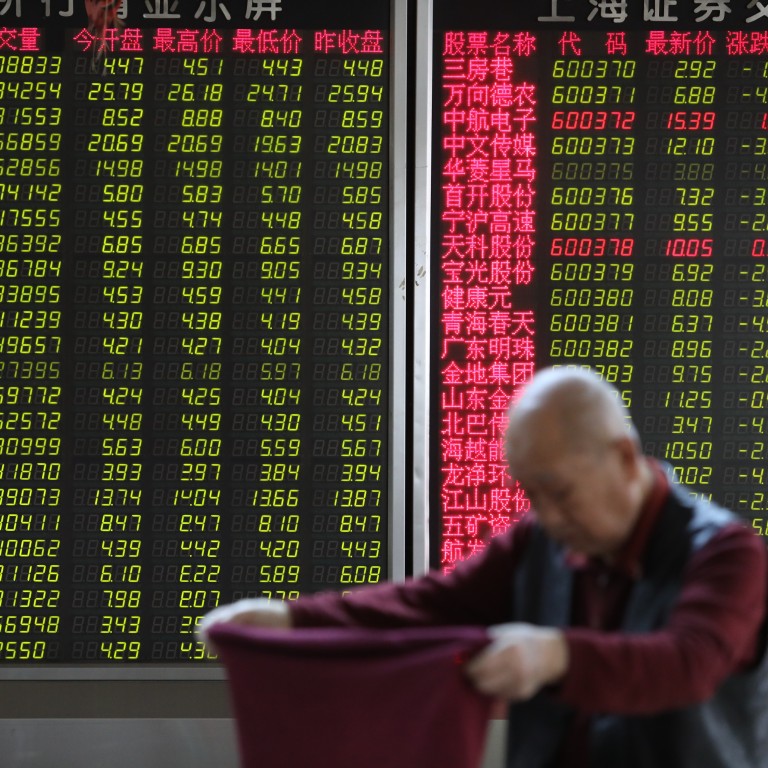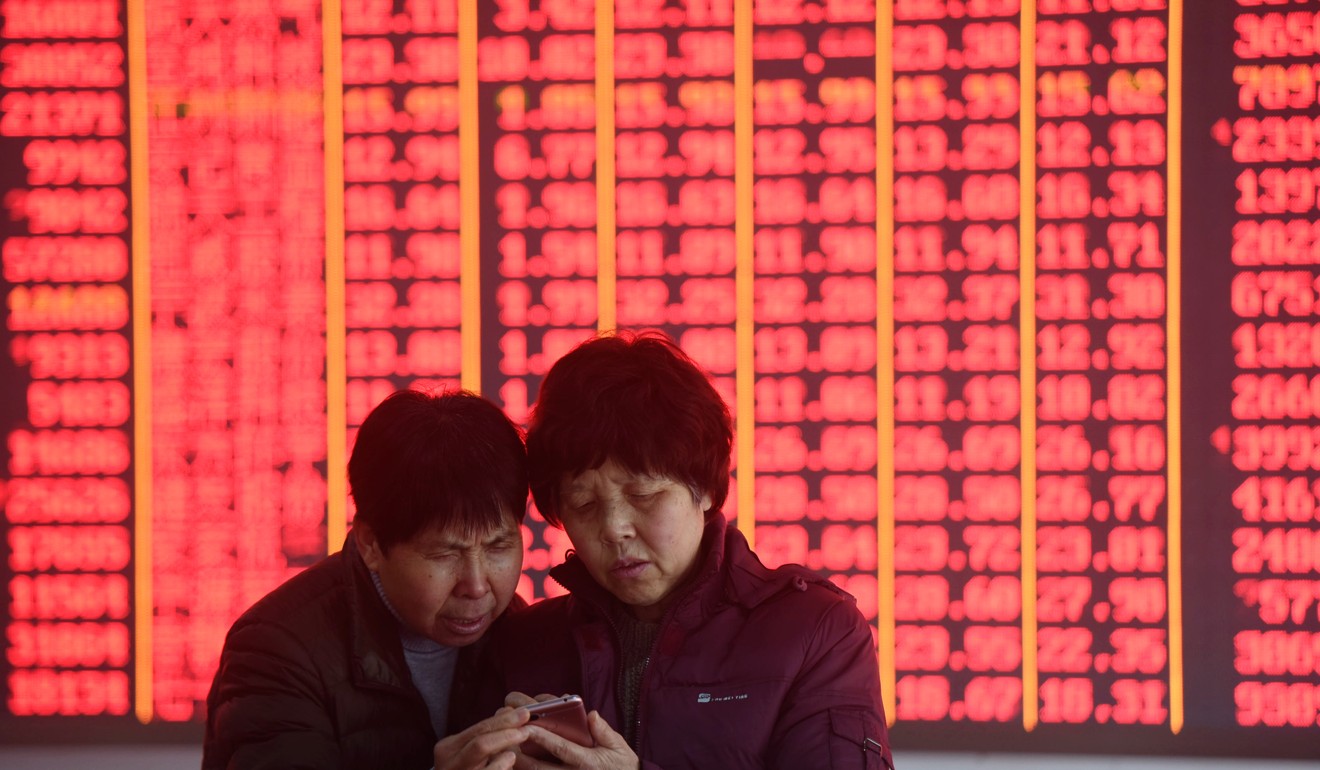
Chinese brokers take a collective pay cut after a miserable 2018 in the world’s worst-performing stock market
- Average pay decreased by 21,300 yuan to 406,000 yuan last year, down 5 per cent from the previous year
- Sun Shuming, chairman for GF Securities, saw his compensation more than halved to 18.6 million yuan, still the best-paid executive in the industry
Chinese brokers would rather forget a disappointing 2018.
Nearly 70 per cent of Chinese brokerages reported a reduction in employee compensation for last year, with one fifth slashing it by more than 20 per cent, as the industry struggled because of the market downturn and a slowing economy.
The compensation includes salary, bonus, and benefits.
“Last year was a tough year for the entire industry, as the market slumped amid trade war fears and tightening financial regulations,” said Li Xing, a Beijing-based analyst for Lianxun Securities.

The Shanghai stock index was the world’s biggest loser last year, down 24.6 per cent. Stock trading volumes and IPO fundraising both plunged to the lowest levels since 2014. That caused a 41 per cent slide in the securities industry’s total profit to 66.6 billion yuan (US$9.9 billion), official data showed.
To survive the downturn, 16 out of 24 listed brokerages cut compensation, while 11 slashed jobs, according to the latest figures as of Friday from the Choice financial terminal.
The average pay among these 24 firms was around 406,000 yuan, down 21,300 yuan, or 5 per cent from the previous year. Five of them slashed the compensation by more than 20 per cent.
Industrial Securities posted the biggest pay cut to an average of 463,500 yuan, down 34.5 per cent from the previous year. It was followed by GF Securities’ 29 per cent decrease.
GF Securities, the fifth largest securities firm by revenue, said in January it had decided to make a “collective compensation cut” across the company, in light of “risk events involved in the business”.
It added that the cut would lift its profit higher by around 6 per cent from its initial announcement.
The other three that reduced pay were Orient Securities, Guoyuan Securities, and Sinolink Securities.
Among the 11 that cut jobs, First Capital Securities made the biggest lay-offs by percentage – its employee count fell by 13 per cent to 3,725.
Bigger rivals also shed jobs, including Citic Securities, Shenwan Hongyuan Securities, China Galaxy Securities, China Merchants Securities, and CSC Finance.
It was not just the average employees who felt the pain, senior executives too took a pay cut. Only four main firms announced their top management as a whole were paid more in 2018 than the previous year.
The biggest pay cut imposed on a company boss was at Central China Securities. The company reduced its chairman Jian Mingjun’s compensation to 643,300 yuan, down by 67 per cent from 1.96 million yuan in the previous year.
Still, nine senior executives saw their personal pre-tax compensation past the 10 million yuan threshold – four from GF Securities, three from Citic Securities, and two from Haitong Securities.
Despite a pay cut, the best-paid industry executive was Sun Shuming, chairman for GF Securities, whose compensation more than halved to 18.6 million yuan in 2018, from 38.5 million yuan in the previous year.
In second place was his colleague Lin Zhihai, general manager for GF Securities. Lin received 17.05 million yuan last year, also down by nearly 60 per cent from 2017.
Despite the industry-wide carnage, Citic Securities, the country’s largest securities firm, recorded an average 207 per cent increase in its management compensation, as it hired several new C-suite executives in 2017. As a result their 2018 compensation saw a sharp increase due to a lower base in 2017.
Xue Jirui, a member of Citic’s executive committee, received 10.77 million yuan last year, a 26-fold increase from 415,000 yuan in the previous year.
Ge Xiaobo, chief financial officer and chief risk officer for Citic, was paid 15.67 million yuan, nearly a fourfold increase from 4.1 million yuan in 2017.
Still, analysts expect a better year ahead amid a rebound in the stock market and loosening of financial regulations.
“The turning point has come for the industry this year, as we have seen a flurry of positive reform policies for the capital market,” wrote Ma Kunpeng, a Shanghai-based analyst for Shenwan Hongyuan Securities, in a recent note.
“Leading industry players will benefit the most from loosening liquidity conditions, a more active stock market and reform policy boost.”

